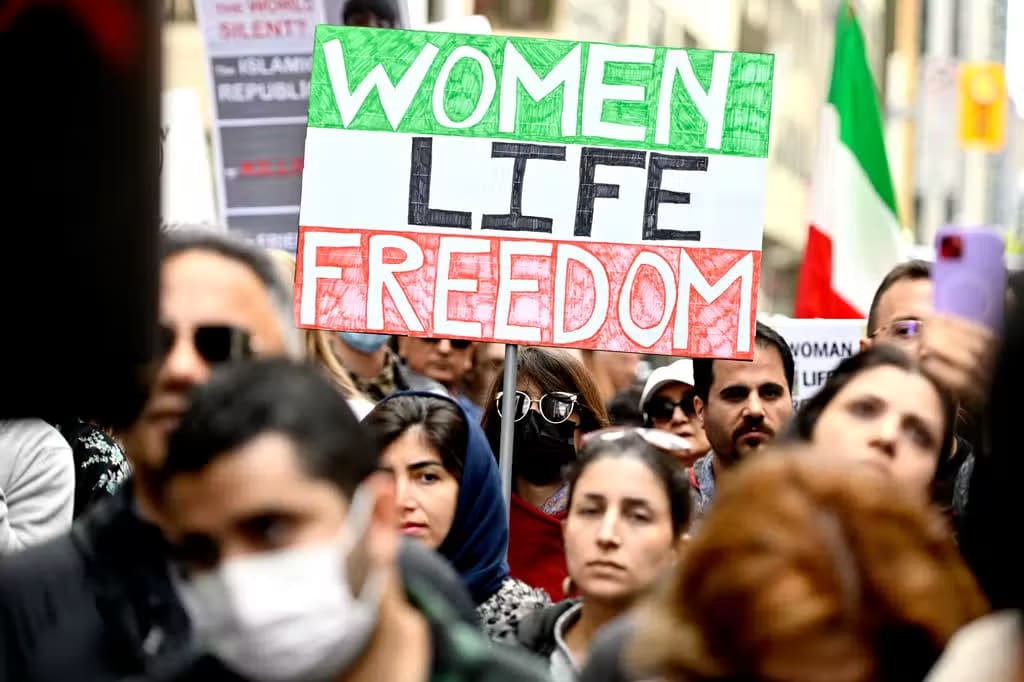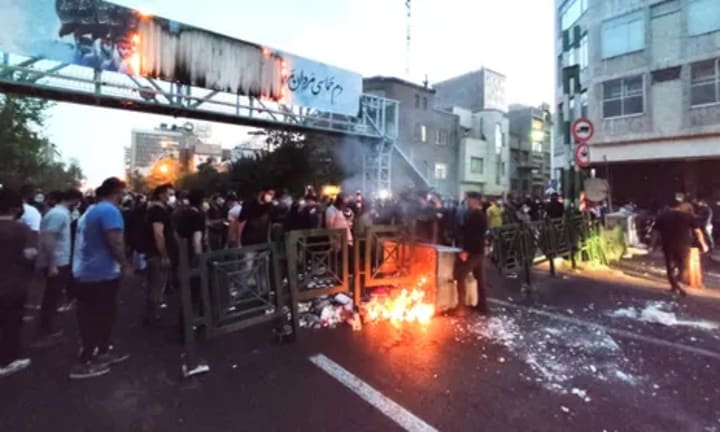Winds of change in Iran.
Mahsa Amini's death has opened the doors of justified anger against the Iranian Theocratic regime.

The 22-year-old's death in Tehran, as a result of wearing her headscarf incorrectly in accordance with the state hijab laws, quickly became a striking symbol of resistance. Since the 1979 Islamic Revolution, women in Iran have been required to wear headscarves, and the morality police are tasked with upholding this along with other regulations.

After the death of Mahsa Amini, protests against the theocratic government's treatment of women, erupted in many cities, and to this day, they do not appear to be calming down. On the contrary, they remain as vivid as the first one hours after the death of the 22-year-old girl. Empowered women have been destroying images of Grand Ayatollah Ali Khamenei and of the murdered general Qassem Suleimani. All of these actions were unthinkable a few months ago, but so was the sight of so many women, Kurdish, Persian, and women from other minorities—entering the streets without hijabs, protesting for their rights.

Violent crackdown
The demonstrations occur at a delicate moment for Iran's leadership since the nation's economy is still struggling as a result of US sanctions over its nuclear program.
According to Iranian news websites, Iran's intelligence ministry has issued a warning that participating in rallies over Ms Amini's passing, is against the law and might result in legal action. According to "Iran Human Rights", an organization headquartered in Oslo, at least 108 people have died as a result of Iran's crackdown on more than three weeks of statewide protests brought on by Mahsa Amini's passing. In separate skirmishes in the city of Zahedan, in the southeasterly province of Sistan and Baluchistan, the Iranian security forces counted 93 deaths of civilians who were protesting. According to a security official quoted by the Iranian state-backed news outlet Tasmin on Saturday, at least 1,200 people have been detained in relation to the demonstrations. Following clashes with security forces, dozens of demonstrators are said to have died.

Internet crackdown
According to the internet watchdog Netblocks, as long as the demonstrations continue, Iran will see the third wave of "nation-scale" loss of mobile internet connectivity. Similar internet restrictions took place in Iran in November 2019, taking Iranians almost entirely offline as authorities tried to curb the spread of nationwide protests over fuel prices.

Will there be a change?
Since the early years of the Iranian revolution in the 1980s, Iran has seen a significant transformation, but its leadership has not. Following the fall of the monarchy, a close-knit group of powerful clerics—Mohammad Beheshti, Ali Akbar Hashemi Rafsanjani, Ahmad Jannati, Mohammad Reza Mahdavi Kani, Mohammad Yazdi, Ali Khamenei, and others—took control and exterminated opposition Marxists, socialists, moderates, and traditional clerics. Despite the deaths of many of its members over the past four decades, this group of revolutionaries and its adherents has maintained solid grip over the levers of power. Presidents, ministers, and parliaments have come and gone.
On the other hand, the emergence of a population that is smart, creative, well-educated, curious about the world, and enormously tech-savvy. Has created expectations for the modernization of Iranian society.
The regime seems to be struggling to find its foothold. Authorities effectively used Iranians' feelings of nationalism to quell past demonstrations. Feeding nagging worries that unrest may be used as a front for separatist movements among the nation's ethnic Kurdish, Baluchi, and Arab minorities. All of that seemed to be transcended by Amini's passing.
This new struggle for the Iranians is unlikely to result in just a "regime change" because the Iranian state is far too oppressive to allow this and because there is enough nationalism and paranoia there, that any attempt of regime change would be seen as outside interference in Iranian matters.
Death to the Dictator!

These protests reveal that Khamenei no longer has an ideological hold over his population. My hope stands with the belief that the Iranian people, no matter how difficult overturning a violent regime might be. They will continue fighting for the fatal blow against the Islamist Regime, leading the future of their country towards Peace, Development, Social Juctice and most importantly towards a sovereign democracy that will respect all citizens, follow the division of powers and support human rights. Especially Iranian women's rights that have been violated in Iran for over half a century.
Written by Sergios Saropoulos
About the Creator
Sergios Saropoulos
Philosopher, Journalist, Writer.
Found myself in the words of C.P. Cavafy
"And if you find her poor, Ithaka won’t have fooled you.
Wise as you will have become, so full of experience, you’ll have understood by then what these Ithakas mean"






Comments
There are no comments for this story
Be the first to respond and start the conversation.